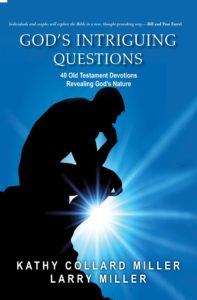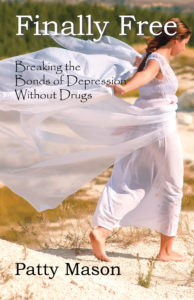 I was on my third run to the drug store in two hours. This time it was to get batteries for the blood pressure monitor I had just bought during run #2. My husband had recently endured two lengthy hospital stays in the last three weeks, and we were both exhausted. The tests, the doctor’s appointments, the new routines that had to be followed, staying stocked up on the right food and drink, remaining observant about health issues. I had to remain vigilant, but it was wearing me out.
I was on my third run to the drug store in two hours. This time it was to get batteries for the blood pressure monitor I had just bought during run #2. My husband had recently endured two lengthy hospital stays in the last three weeks, and we were both exhausted. The tests, the doctor’s appointments, the new routines that had to be followed, staying stocked up on the right food and drink, remaining observant about health issues. I had to remain vigilant, but it was wearing me out.
As I reached the stoplight at the end of my street, I closed my eyes and sighed deeply. “Help me, God, I’m so tired.”
Into my mind immediately came Isaiah 40:31. “Those who wait on the Lord will renew their strength. They will mount up on wings like eagles. They will run and not grow weary. They will walk and not faint.”
As I finished reciting the verse, my spirit lifted. “Those who wait on the Lord” . . . . Yes, that’s what I needed right then. The Lord . . . renews my strength when I am weary. The words were so fitting. I felt like I was constantly running around, trying to help my husband, trying to remember everything I needed to do and everything he needed to do. But God was telling me when I wait on Him I “will run and not grow weary for He will renew my strength.” I repeated the verse over and over in my mind. And as the scripture settled and took root in my spirit, I honestly didn’t feel as weary. I repeated the verse over and over in my mind as I took the last turn into the drug store. God was filling me up with His strength, and as He gave me His strength, He was renewing my strength.
Many of us feel weary right now. Maybe it’s not because of trying to help an ailing loved one, but because of continued lockdowns and the inability to go out and socialize with friends and family. You may be dealing with a shrinking budget because of shutdowns at work, or perhaps you’re trying to hold down a job while also trying to help your children do school from home. Maybe your marriage was already crumbling before the world was hit by Covid, and this situation is exacerbating the friction between you.
Or perhaps you’re actually one of those who are suffering from Covid yourself or have a friend or family member trying to recover from this frightful virus. Perhaps you live by yourself and the loneliness is descending like a cloud of darkness over your spirit.
Whatever the reason, too many of us are weary.
Right before Jesus was born, the world was weary too. The Bible says they lived in darkness. Zechariah, the father of John the Baptist, looked forward to the coming of Christ as he spoke this prophecy at the birth of his son, who was to be the forerunner of the Messiah. “The rising sun will come to us from heaven to shine on those living in darkness and in the shadow of death, to guide our feet into the path of peace” (Luke 1:78-79).
In the darkness, God sent the Light of the World to shine into our lives to bring us hope and peace. God knew what was happening. God saw the hopelessness people were experiencing. God knew what was needed. And He sent us Jesus.
So yes we are weary. Yes, we’ve walked through a cloud of fear and uncertainly. Our normal lives have been disrupted. Even with a vaccine coming, we still don’t know how we will hold on.
But Christmas is coming. And it’s not just about the lights, the presents, and the music. It’s about the Christ child, who brought hope and salvation so we could turn our worlds around. No longer do we need to depend on the world to bring us joy. We only need to invite the Savior into our life and let Him settle there. And each time we feel the weariness descend upon our hearts, we need to “wait upon the Lord.” “He will renew [our] strength.” We will feel our hearts “mount up on wings like eagles. We will run and not be weary. We will walk and not faint.”
“Why do you say, O Jacob, and complain, O Israel, ‘’My way is hidden from the Lord, my cause is disregarded by my God’? Do you not know? Have you not heard? The Lord is the everlasting God, the Creator of the ends of the earth. He will not grow tired or weary, and his understanding no one can fathom. He gives strength to the weary and increases the power of the weak. Even youths grow tired and weary, and young men stumble and fall. But those who wait on the Lord will renew their strength. They will mount up on wings like eagles. They will run and not grow weary. They will walk and not faint” (Isaiah 40: 27-31).
If you are weary from trying to reconcile a broken marriage, you can find hope and strength through my book, Broken Heart on Hold, Surviving Separation. In this book, as I walk with you through this difficult valley, I believe you will “renew your strength” for the journey ahead.



















